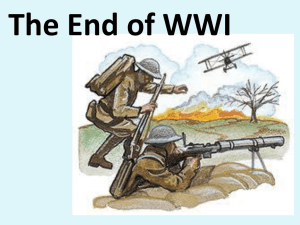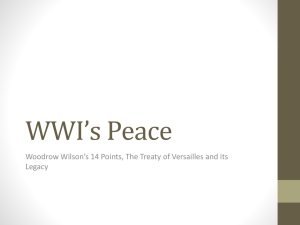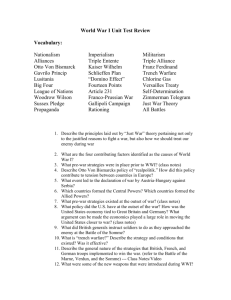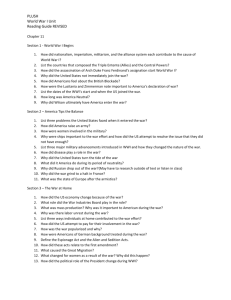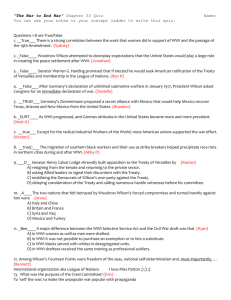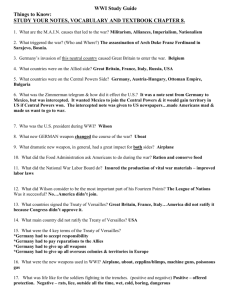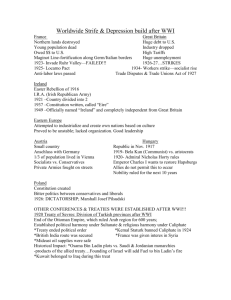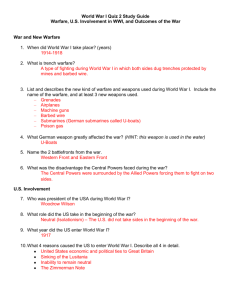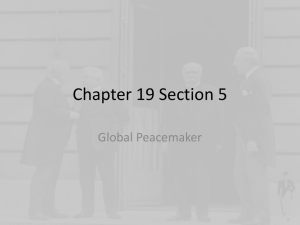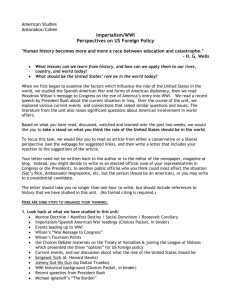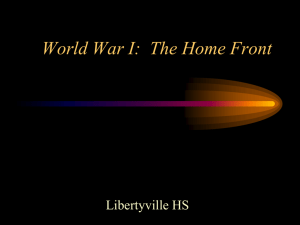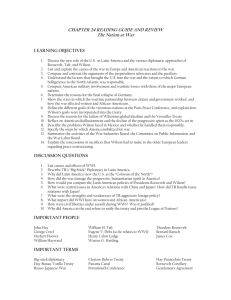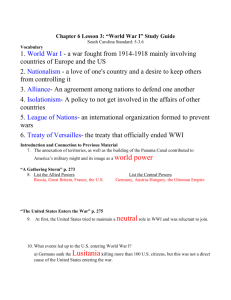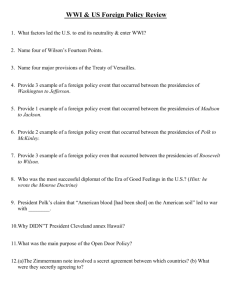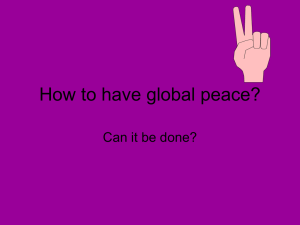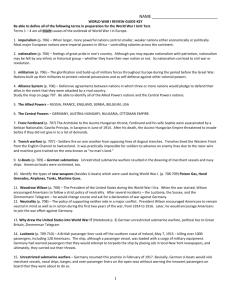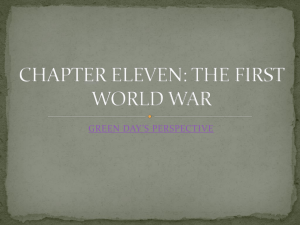Title: World War I & Its Aftermath
advertisement
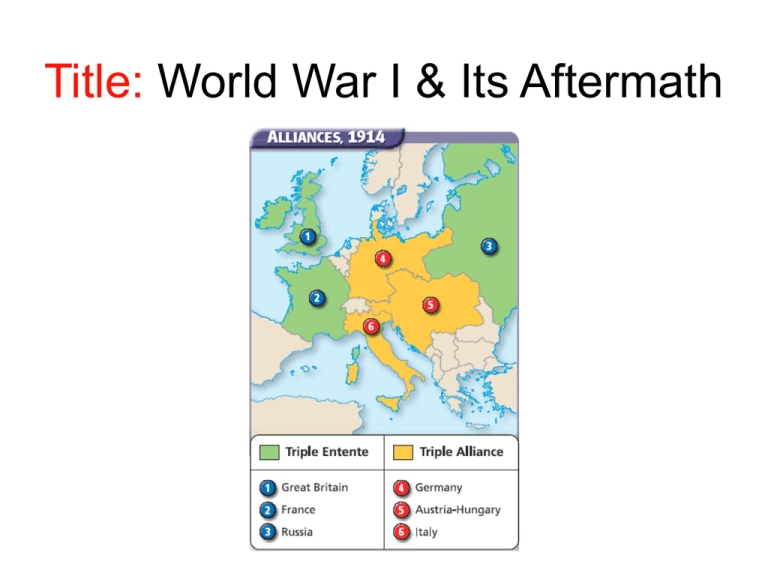
Title: World War I & Its Aftermath Revisit the Monroe Doctrine • Asserted US right to intervene in Western Hemisphere when national security was at stake • US wants no part of Europe’s internal disputes • With Europe leading toward WWI, it was difficult for US to follow Monroe Doctrine Isolation & neutrality • US initially tried to stay out of events going on in Europe • Woodrow Wilson won presidential election of 1912: vowed to keep America in isolation • When WWI broke out in August 1912, Wilson declared neutrality. – America would treat all countries fairly and without favoritism • Neutrality was difficult to follow because the US & Britain were close allies Germany had submarines, or Uboats • International law: Attacker must warn civilian ships before attacking • Germany announced that their submarines would not do this – Usually attacked US ships that were carrying military supplies • Germans sank the passenger ship Lusitania in 1915 – 1,200 passengers killed – It was carrying tons of ammunition to British Zimmerman Telegram • Telegram from Germany to Mexico • Proposed that if Mexico/Japan declared war on US, Germany would help • Intercepted and published in newspapers • Helped shift US desire to enter WWI I) Civil Liberties Violated • Espionage Act (1917) = illegal to try to convince someone to dodge the military draft • Sedition Act (1918) = illegal to try to prevent the sale of war bonds or to speak negatively of the government, the flag, the military, or the Constitution Increased paranoia due to Russian Revolution • In 1917, Russia’s tsar was overthrown and the country became Communist • Americans began to fear a Communist takeover: – Radical labor unions were disbanded, leaders jailed – Federal Bureau of Investigation (FBI) was created and headed by J. Edgar Hoover • Business took advantage of this by using strikebreakers against unions Palmer Raids • Government raided union halls, pool halls, social clubs, and 4,000 homes of suspected radicals • 600 were deported (most had expressed sympathy for the Communist movement) • Many acts of violence against German immigrants and Americans of German descent Committee on Pubic Information (CPI) • Government wartime propaganda • Sensational messages • Created images of the Germans as cold-blooded, baby-killing power hungry people. • Encouraged Americans to reject all German things: – Sauerkraut = liberty cabbage II) Women • Number of women in workforce did not increase greatly during WWI • Employment changed: Quit domestic work & started working in factories – 20% of factory manufacturing jobs • Ended when males returned home III) African Americans • Many joined the army • W.E.B. Du Bois encouraged them to enlist, hoping it would provide an inroad to social inequality • Army segregated them and assigned them menial labor • Fearful of integration, the US army assigned black combat unit to French command • 500,000 moved from South to North – In search of jobs IV) Aftermath of WWI • American participation tipped the balance in the Allies’ favor, who won the war • The Versailles Treaty was to be written in Paris • President Woodrow Wilson attended because he wanted them to implement his Fourteen Point Plan: – Free trade through lower tariffs and freedom of the seas – Reduction of arms supplies on all sides – Promotion of self-determination (both in Europe and overseas) – Creation of the League of Nations (organization that functions like the United Nations) Results of the Versailles Treaty • Punished Germany through disarmaments, reparation of payments, admittance of Germany’s fault for starting the war • Many historians agree that by leaving Germany humiliated & in economic ruin, the Treaty set the stage for WWII • Wilson’s 14 Point Plan was mostly discarded, except for the League of Nations In the end, the United States rejected the treaty and American participation in the League of Nations • America wanted to return to a period of isolationism • Wanted less interaction with Europe, not more • Wilson tried to campaign for popular support of the treaty but he suffered a stroke and could not complete it.


